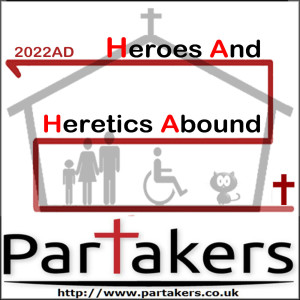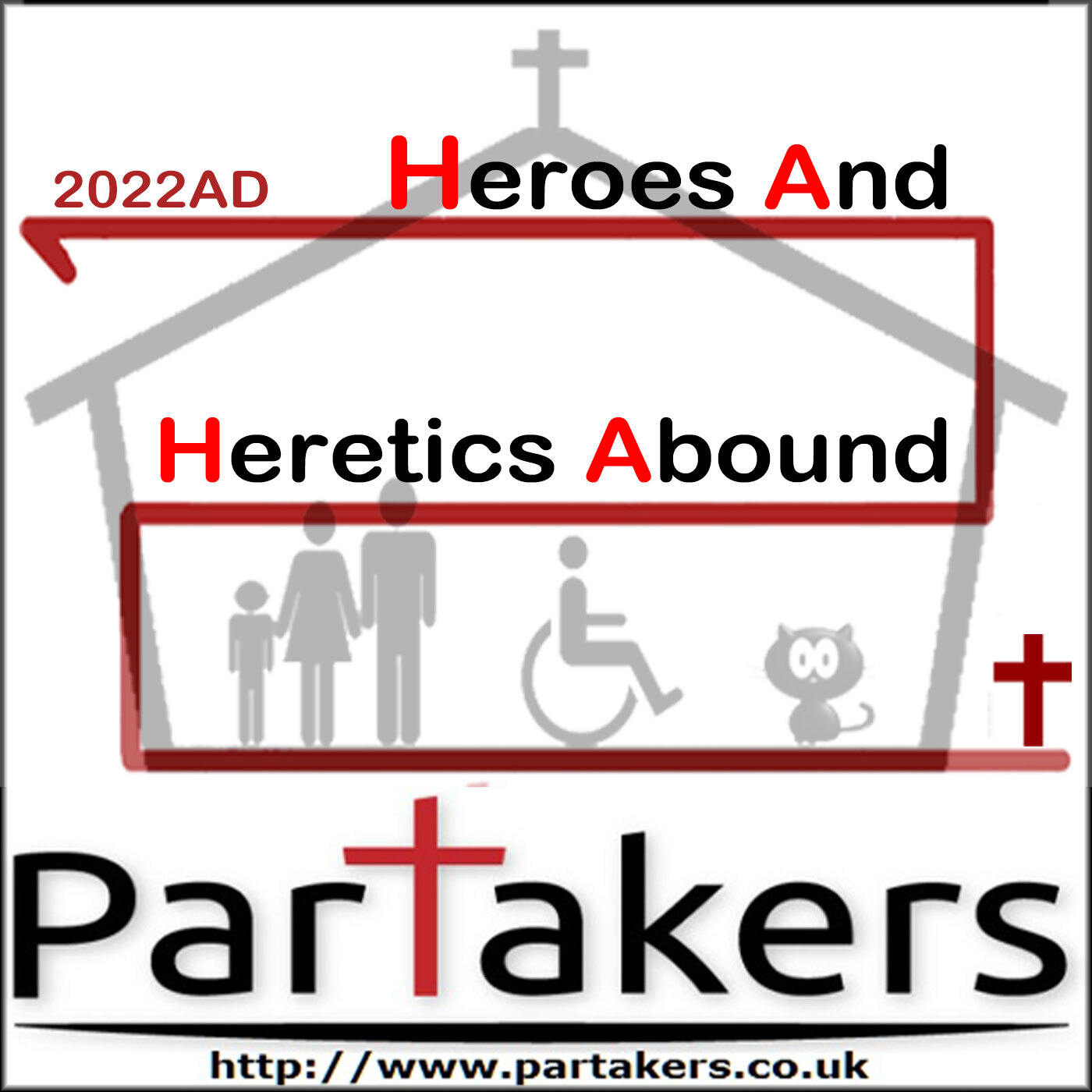
432.5K
Downloads
3361
Episodes
G’day and welcome to Partakers Christian Podcasts! Join us for uplifting Bible teaching, inspiring readings, heartfelt worship, powerful prayers, and fascinating church history. Whether you’re new to faith or growing deeper in your journey, we’re here to encourage and equip you. 🎧 Tune in, interact, and be inspired—wherever you are in the world.
G’day and welcome to Partakers Christian Podcasts! Join us for uplifting Bible teaching, inspiring readings, heartfelt worship, powerful prayers, and fascinating church history. Whether you’re new to faith or growing deeper in your journey, we’re here to encourage and equip you. 🎧 Tune in, interact, and be inspired—wherever you are in the world.
Episodes

Friday Oct 31, 2025
Church History Part 21
Friday Oct 31, 2025
Friday Oct 31, 2025

Part 21
Rising Opposition
Last time we looked at the man Thomas Aquinas before going on to see the Eastern and Western Churches separate spectacularly! Today we see rising opposition to the Roman Catholic Church – from outside it and from within!
Persecution & Inquisition.
In the 12th century, a number of groups started questioning important Church doctrines. Itinerant and wandering monks preached to the imagination and consciences of people. People were starting to read the Bible for themselves and also pray to God without relying on the prayers of the Clergy. Which Jesus are people to follow was in a lot of people’s minds. “Do we look to – the all-conquering ascended Christ who is ruling earth through his vicar, the Pope or do we look to the opposite of this image – the Jesus who said “Foxes have holes, and birds have nests, but the Son of Man has nowhere to sleep.” (Matthew 8:20)
Asking questions as to why the church hierarchy feast while the common people starved? Where is the church people started questioning – is it in the sacramental institution or is it in the people? People such as Robert Grosseteste, the Bishop of Lincoln, who decried the laziness, greed and immorality of the Roman Catholic clergy. To question the Pope and the Roman Catholic church was regarded then as heresy. These people, baptized members of the church, who were questioning the Church, were seen to be turning their back on the Church. What was the church to do?
The Church responded by means to purify the Church of heresy. This was conducted through trials and the Inquisition. There was some conflict within the Church itself. How can the Church, employ violence to ensure peace within society and maintain a heresy-free Church? A pure church was the Will of God – reigning through His representative on earth, the Pope. Innocent III labelled heresy, as treason in 1199. He made the Dominicans the main order to search out heresy.
At the time, faith was not a private matter but a public faith upon which the whole of society was built. To commit any heresy was therefore also to commit treason against the State. Disobedience therefore against the State, was therefore also heresy. Hence a dark time in Church history with the Inquisition, which involved the deliberate and prolonged torture of both heretics and infidels. This was as a means to eliminate the heretics and maintain strict doctrine, teaching and practise.
In 1224, execution by secular authorities became papal policy. Innocent IV condoned torture (1252) to 'help people find the truth'. A court went from town to town searching for heretics. An opportunity was given for confession and recantation, but the resistant were often burned at the stake. The Inquisition was extensive in Italy, Spain & France for several centuries.
Arise Arnold!
However, questions were starting to be raised about how far the Church had strayed from the clear Apostolic teachings of the Bible – particularly in regard to non-violence and poverty. Arnold, an Italian churchman urged the Church to sell its riches and give the proceeds to the poor – helping return the Church to its New Testament roots.
He was also at the forefront of movements to overthrow the Pope. When Pope Innocent II was on tour for the Second Crusade, Arnold seized his chance and with the help of the Romans took power. Romans dreaming of a return to the glories of the Roman Empire! Arnold decreed that clergy were to live in poverty. This lasted about 10 years until Pope Hadrian IV overthrew Arnold and Arnold was executed for heresy. But his voice wasn’t alone! There were more to come.
Arise Waldo!
Peter Waldo of Lyons, France, was a rich merchant and converted to Christianity in 1175-1176. Soon after he gave away his wealth in order to follow Christ with a lifestyle of simplicity, poverty and preaching. He gained a large following and was approved by the Pope in 1179. A group we now call the Waldensians grew from this with a mission to the poor. Waldo sent out Christians, two by two, in order to teach and explain the Scriptures to people.
Once when ordered to stop, Waldo quoted the Apostle Peter in rebuttal “We must obey God rather than men.” (Acts 5:29). These were laymen – not trained by the Church and therefore not allowed to go about preaching and speaking without invitation by Bishops and church hierarchy.
They were a living condemnation of the Church and in 1181 they were condemned. In the year 1184 they were excommunicated. Pope Lucius III ordered their elimination by inquisition and secular punishment. They formed their 'own true' church which spread throughout most of Europe except Britain.
The main objections of the Church to the Waldensians, was that they engaged in unauthorised preaching of the Bible; rejection of the intermediary role of the clergy; and the rejection of purgatory. Reformation had not yet come to the Church, particularly in matters of salvation by grace alone through faith alone. The Waldensians didn’t teach this but reformation of the Church and of Church teaching was coming. But not yet…

No comments yet. Be the first to say something!